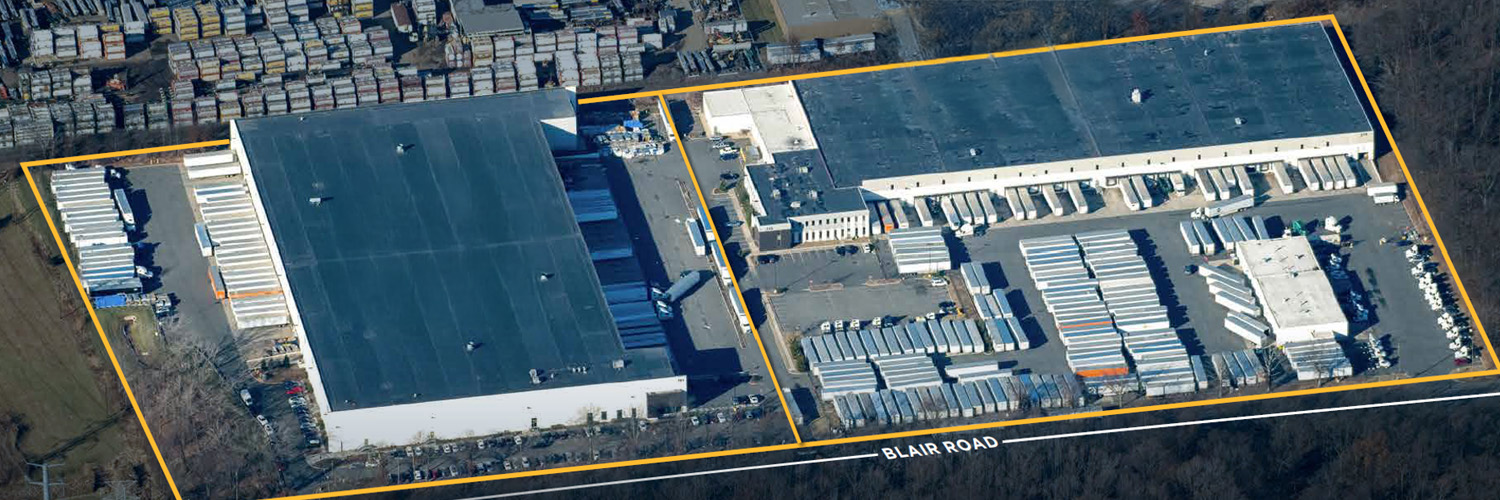Press

CenterPoint Properties Invests in Two Class A Facilities in Northern New Jersey
Search Site
Back to Menu

“We’ve seen a significant shift in food consumption during the pandemic, and that is changing how food is distributed. The grocery segment is surging because more people are eating at home. Grocers are also adding to their bottom line by providing value-added services such as premade meals.”
- Jim Clewlow, Chief Investment Officer
Jim discussed one key area of e-commerce sales he sees as an industrial driver in 2021 in the article, “Three Predictions for Chicago’s Industrial Sector.”
Forecasting the performance of a market or an asset class is nearly futile in the best of times—and 2020 is certainly not the best of times. It’s a little easier, however, with some baseline information.
Peering into the Chicago market, for example, there were 43.5 million square feet of industrial leasing in the last four quarters, ending with Q3 2020, according to new research from Avison Young. Looking ahead, industrial leasing and construction are expected to remain strong going into 2021. Those businesses engaged with the consumer goods, grocery and medical supplies sectors should lead much of the activity.
“We expect 2021 to be a robust year for the industrial sector as e-commerce demand, along with growth in traditional manufacturing and warehouse operations, drive growth,” said Erik Foster, Avison Young principal and head of industrial capital markets. “Investors are focusing on core markets due to their resiliency and the access they provide to large consumer populations.”
With this tumultuous year nearing its close, now is the time to prognosticate on where trends may be heading, at least in the near-term.
1. The e-commerce explosion will continue
Online shopping—and the resultant warehousing and shipping of goods to consumers’ homes—has been the significant driver for the industrial sector in recent years. This trend expanded during pandemic lockdowns and is only expected to increase next year, perhaps by as much as 30 percent.
And while Amazon is the big dog in this arena, they aren’t the only ones to have benefitted. Target and Walmart reported 24 and 97 percent sales growth, respectively, in their Q2 2020 quarterly filings, with much of that volume coming from e-commerce sales. Regardless of the retail source, this growth in online shopping has led to a surge in leasing and construction of warehouse space.
The direct-to-consumer movement of household goods was a strong yet growing trend prior to COVID-19. There have been new developments in other areas since the start of the pandemic, however, as consumers have had to transfer their typical restaurant spend. Unable to go out to eat as they might have in the past, more people are turning to curbside pickup, delivery and grocery store for their food purchases.
“We’ve seen a significant shift in food consumption during the pandemic and that is changing how food is distributed,” said Jim Clewlow, chief investment officer with Oak Brook, Illinois-based CenterPoint Properties. “The grocery segment is surging because more people are eating at home. Grocers are also adding to their bottom line by providing value-add services such as premade meals.”
Nationally, consumers aren’t eating more during the pandemic. And yet, this change in behavior has altered how food moves through the supply chain—leading to renewed demand for warehouse and cold storage space.
About CenterPoint Properties
CenterPoint is an industrial real estate company made up of dedicated thinkers, innovators and leaders with the creativity and know-how to tackle the industry’s toughest challenges. And it’s those kinds of problems — the delicate, the complex, the seemingly impossible — that we relish most. Because with an agile team, substantial access to capital and industry-leading expertise, those are exactly the kinds of problems we’re built to solve. For more information on CenterPoint Properties, follow us on LinkedIn. For all media inquiries, including requests for interviews with CenterPoint executives, please contact media@centerpoint.com or 630.586.8285.
For CenterPoint Investment inquiries, please contact:
Subscribe
Microsite Request